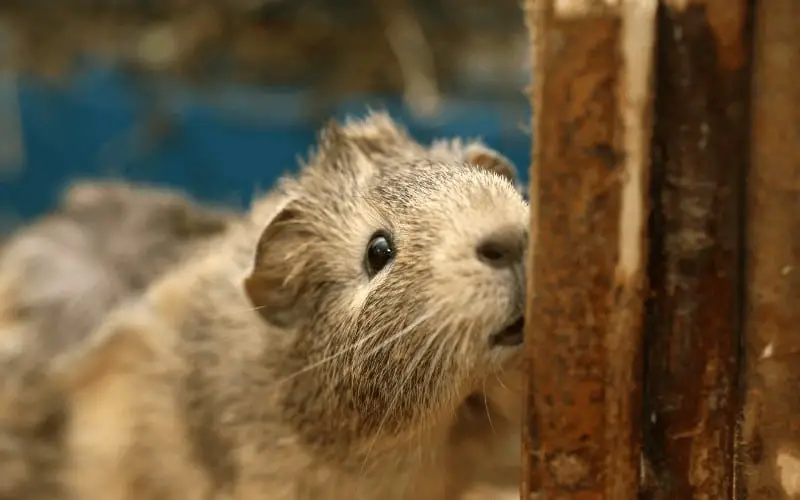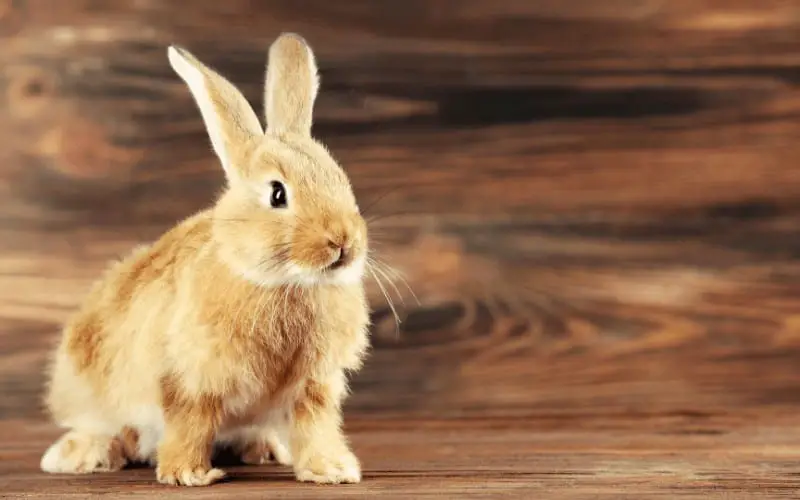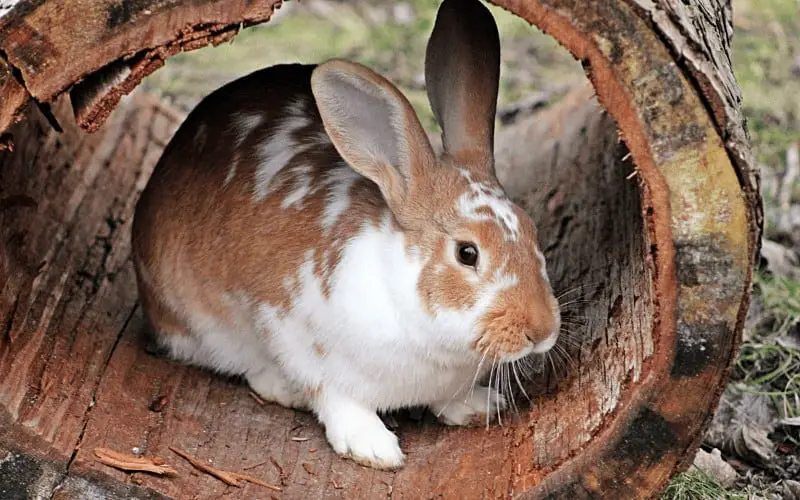Many people have asked the question, “can rabbits chew on wood?” The answer to this question is yes! In fact, rabbits often gnaw on trees and wooden objects in their environment.
They do this for a number of reasons: boredom, stress relief, or simply because they are hungry. Rabbits also do this as a way to mark territory – much like dogs will urinate around an object.
Although, some rabbits cannot chew on woods. Some reasons why a rabbit might be unable to chew on wood include an improper diet, lack of hard teeth, and gum disease.
Can Rabbits Chew on Wood?
Like I answered earlier, rabbits can chew on wood, but the answer also varies depending on what type of rabbit you have.
According to House Rabbit Society Expert:
It’s not a good idea to furnish your bunny with wooden furniture, but he can chew on it in short bursts, like when eating hay.
House Rabbit Society Expert also stated that:
A rabbit will be able to eat softwoods if they’ve chewed them with their teeth first. Harder woods will take some time for a rabbit to digest and break down the fibers so that they’re edible.
They further went on to explain that “you can put a block of wood in the pen for them to chew on, but make sure it’s not too big or they’ll choke.”
Therefore, we advise you don’t give your pet any wooden furniture and that if he is going to be chewing anything – stick with softwood. It will usually take some time for a rabbit to digest and break down the fibers so that they’re edible.
Do Rabbits Need To Chew On Wood?

Yes, rabbits need to chew on wood. Rabbits are designed for a diet that consists mainly of plant matter, but they also require some dietary help from their teeth.
Teeth wear down and break over time like any other animal’s teeth, so the rabbit needs material to keep them worn down at a healthy rate – this is why there is an abundance of plant matter in the diet.
What Wood Is Safe For Rabbits To Chew?
They should not be left in the cage when you are away from home, and they cannot get at them but do allow your bunny to have a taste of these woods as long as he or she is supervised.
This is a list of the different kinds of woods that it’s okay for bunnies to have a taste of:
1. Apple
Apple is good for rabbits to chew on because it is not acidic.
A note about fruitwoods- These types of wood are safe for bunnies to chew on, but they should be given in moderation due to the high sugar content and potential tooth decay issues.
2. Alfalfa
Alfalfa wood is a favorite of rabbits for chewing because it has lower sugar content than fruitwoods and the availability in pet stores.
3. Cedarwood
Cedarwood is also good for bunnies to chew on due to its low acidity levels, but be careful not to get any oils from these woods onto his fur as they can irritate the skin.
4. Pine
Pine is also a good wood for bunnies to chew on because it has lower acid levels but is careful not to let them have too much due to its high sugar content and risk of tooth decay.
5. Aspen
Aspen is a good choice for wood to chew on because it has the lowest sugar content, but be careful not to give them any other types of wood as an alternative.
6. Poplar
Poplar also has low acidity levels and lower sugar content than fruitwoods, but unlike cedarwood, their availability in pet stores is limited.
It’s worth noting that poplar wood has some concentration of tannins, which can cause gastrointestinal upset and skin irritation in bunnies.
7. Basil
Basil wood has low acidity levels and the highest sugar content, but it is also a good choice because of its high availability in pet stores.
The two qualities that make basil wood safe for bunnies to eat are lower acidity level and higher sugar content than fruitwoods.
8. Rose
Rosewood has the lowest acidity level and higher sugar content than fruitwoods. This is a good choice for bunnies to chew on because it will not pose any health risk like other woods that have high levels of sugars can do.
What Wood Is Dangerous For Rabbits?

1. Walnut
Walnuts are high in fat, so they should be avoided for rabbits to chew on because of their risk of tooth decay, obesity, or a fatty liver.
2. Maple
Maple is not good for rabbits to chew on and may lead to gastrointestinal problems or other issues.
This wood can be dangerous for them because they will ingest some of the bark, which contains tannic acid, and its leaves have compounds that inhibit normal functions in their intestines.
3. Oak
Oak is not good for rabbits to chew on and may lead to gastrointestinal problems or other issues.
This wood can be dangerous for them because they will ingest some of the bark, which contains tannic acid, and its leaves have compounds that inhibit normal functions in their intestines.
A note about aromatic woods such as cedar, pine, and redwood- These types of wood are not safe for rabbits to chew on because they contain oils that can cause liver damage.
4. Cherry
Cherry is good for rabbits to chew on, although certain kinds can be toxic.
5. Cedar
Cedarwood is not safe for rabbits to chew on because it contains oils that can cause liver damage.
6. Redwood
Redwood isn’t a good idea either because it is highly acidic and releases corrosive acid when chewed on.
Related Articles:
- How Much Greens Should I Feed My Rabbit?
- How Often Should I Feed My Bunny?
- How Do You Know Your Bunny Is Happy?
- How Much Lettuce Should Rabbit Eat?
Conclusion
Can rabbits chew on wood? This is a question that has been asked many times, but there are not any definitive answers. Rabbits have teeth that grow continuously, and they need to be worn down by chewing food or other materials.
They sometimes chew on things such as paper, cardboard, and wool clothing when they can’t find anything else to chew on.
As far as whether the rabbit will digest the material it chews up in its stomach in order for its teeth to continue growing strong, this is still unknown.
Aspen wood is the safest chew because it has a low acidity level. Be careful not to give them any other types of wood as an alternative.
Pine and poplar are also good choices for bunnies to chew on, but they should only have limited quantities due to their sugar content levels.

